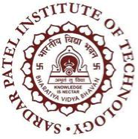Vision
“To impart the education that graduates globally competent, socially sensitive, contributory computer professionals.”
Mission
- To provide rigorous, conducive academic environment and constantly innovate in the design of the curriculum and its deployment (T-L-E-A Processes).
- To collaborate with industries and academia to strengthen education and ensure relevant research.
- To focus on experiential learning and inculcate problem solving, leadership, professional ethics, teamwork and sensitivity to the real-world problems.
- To ensure a professional growth mindset that translates to lifelong learning for all.
B.Tech.: Program Educational Objectives (PEOs)
- PEO1: Graduates will demonstrate proficiency in computing technologies and innovate in design, development, deployment, and maintenance of serving various sectors of economy.
- PEO2: Graduates will be effective communicators, inspiring leaders, aspiring team members, and trailblazers of computational technologies.
- PEO3: Graduates will be contributory professionals demonstrating lifelong learning attitude and sensitivity to society problems.
B.Tech.: Program Specific Outcome (PSO’s)
- PSO1: Possess strong foundation of Computer Engineering (Algorithms, Data Structures, AIML, Databases, Networks, Security etc.) and apply the same for finding efficient and feasible solutions for the real-life problems.
- PSO2: Be motivated to engage in lifelong learning, adopt strong values, and develop skills in project and finance management. Showcase leadership, teamwork, and social awareness, while becoming proficient in various systems such as databases, application software, computer networks and security, cloud services, storage, data manipulation etc.
B.Tech.: Program Outcomes (PO’s)
- 1. Engineering Knowledge: Apply knowledge of mathematics, science, engineering fundamentals and an engineering specialization to the solution of complex engineering problems.
- 2. Problem Analysis: Identify, formulate, research literature and analyze complex engineering problems reaching substantiated conclusions using first principles of mathematics, natural sciences and engineering sciences.
- 3. Design/ Development of Solutions: Design solutions for complex engineering problems and design system components or processes that meet specified needs with appropriate consideration for public health and safety, cultural, societal and environmental considerations.
- 4. Conduct investigations of complex problems: use research-based knowledge and research methods including design of experiments, analysis and interpretation of data and synthesis of information to provide valid conclusions.
- 5. Modern Tool Usage: Create, select and apply appropriate techniques, resources and modern engineering and IT tools including prediction and modeling to complex engineering activities with an understanding of the limitations.
- 6. The Engineer and Society: Apply reasoning informed by contextual knowledge to assess societal, health, safety, legal and cultural issues and the consequent responsibilities relevant to professional engineering practice.
- 7. Environment and Sustainability: Understand the impact of professional engineering solutions in societal and environmental contexts and demonstrate knowledge of and need for sustainable development.
- 8. Ethics: Apply ethical principles and commit to professional ethics and responsibilities and norms of engineering practice.
- 9. Individual and Team Work: Function effectively as an individual, and as a member or leader in diverse teams and in multi disciplinary settings.
- 10. Communication: Communicate effectively on complex engineering activities with the engineering community and with society at large, such as being able to comprehend and write effective reports and design documentation, make effective presentations and give and receive clear instructions.
- 11. Project Management and Finance: Demonstrate knowledge and understanding of engineering and management principles and apply these to one’s own work, as a member and leader in a team, to manage projects and in multidisciplinary environments.
- 12. Life-long Learning: Recognize the need for and have the preparation and ability to engage in independent and life-long learning in the broadest context of technological change.
M.Tech.: Program Outcomes (PO’s)
- PO1: An ability to independently carry out research /investigation and development work to solve practical problems.
- PO2: An ability to write and present a substantial technical report/document.
- PO3: Students should be able to demonstrate a degree of mastery over the area as per the specialization of the program. The mastery should be at a level higher than the requirements in the appropriate bachelor program.
M.Tech.: Program Educational Objectives (PEOs)
- PEO1: Graduates will demonstrate technical competency and maintain software products, services and systems with strong analytical and problem-solving skills.
- PEO2: Graduates will be adept in collaborating on interdisciplinary projects fostering innovations.
- PEO3: Graduates will exhibit effective leadership, teamwork, and lifelong learning.
Department Goals
- Establish minimum two State-of-the-art laboratories in the department.
- Enable at least 15% of the graduating batch students to pursue higher studies in reputed Universities.
- Ensure 90 % faculties with Ph.D. qualification.
- Ensure at least two publications per year in reputed journals.
- Arrange at least Five expert talks on cutting edge technologies every year.
